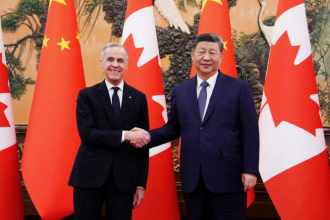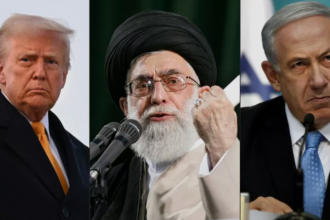January 06, 2023: Gulf state long had closer ties to Jerusalem than its neighbours but is now likely pushing back against Netanyahu’s government, experts say. Just a few years ago, Oman was expected to be next in line after Morocco, Sudan, Bahrain and the United Arab Emirates to sign onto the Abraham Accords normalization agreements with Israel.
On Friday, the country’s parliament voted to criminalize relations or interactions with “the Zionist entity.” While the details have not been public, the new law is broadly applied. “The brothers, Your Excellencies, looked at the development taking place, whether it was technical, cultural, economic or sports, and proposed additional amendments that include severing any economic, sports or cultural relations and prohibiting dealing in any way or means, whether it was a real meeting, an electronic meeting or something else,” said Yaqoub Al-Harithi, vice president of the Omani parliament, about the bill, according to Oman’s WAF news agency.
The sultanate at the southern tip of the Arabian Peninsula, where the Indian Ocean meets the Persian Gulf, was for a long time closer to Israel than other states in the region. Oman never took part in any war with the Jewish state and established unofficial trade relations with Israel in the early 2000s.
Omani Sultan Qaboos Bin Said welcomed three Israeli prime ministers to his country: Yitzhak Rabin in 1994, Shimon Peres in 1996 and Benjamin Netanyahu in 2018. Rabin’s visit was the first by an Israeli prime minister to a Gulf nation.
Omani Sultan Qaboos Bin Said welcomed three Israeli prime ministers to his country: Yitzhak Rabin in 1994, Shimon Peres in 1996 and Benjamin Netanyahu in 2018. Rabin’s visit was the first by an Israeli prime minister to a Gulf nation.
Under Qaboos’ leadership, Oman carved a niche for itself as the Switzerland of the Middle East, able to deal simultaneously with countries such as Israel, Iran, Saudi Arabia, Qatar and Yemen while maintaining a sense of neutrality. The government has been an important middleman in everything from the Iranian nuclear talks to Yemeni Civil War negotiations.
While Saudi Arabia opened its airspace for Israeli flights earlier this year, Oman has held out on opening its own, blocking the most direct route for some flights from Israel to Asia. In doing so, Oman has received pressure from US President Joe Biden’s administration to open its skies.
However, the developments Al-Harithi is referring to in his statement could include the rise of Israel’s new right-wing, far-right and religious government, which has already provoked anger well beyond the Middle East.







